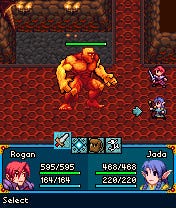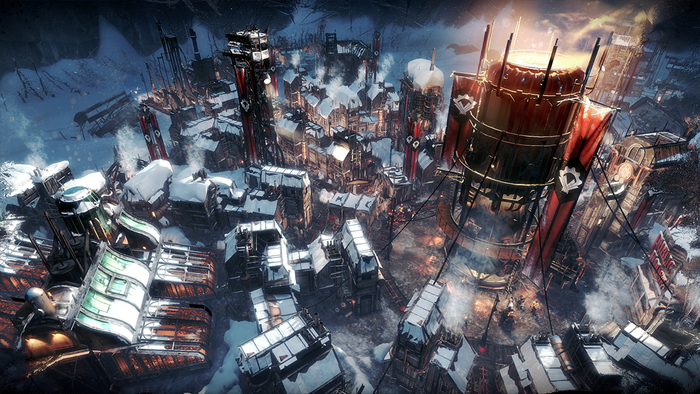Based in London, Canada, Big Blue Bubble were founded in 2004 by industry veterans and have quickly established themselves as mobile developers, working with I-play and other developers on brands such as Jewel Quest. They've now made the move into Wii, DS and casual game development, and Games on Deck talks to CEO Damir Slogar.

 Based in London, Canada, Big Blue Bubble were founded in 2004 by industry veterans and have quickly established themselves as mobile developers, working with I-play and other developers on brands such as Jewel Quest. They've now made the move into Wii, DS and casual game development, and Games on Deck talks to CEO Damir Slogar.
Based in London, Canada, Big Blue Bubble were founded in 2004 by industry veterans and have quickly established themselves as mobile developers, working with I-play and other developers on brands such as Jewel Quest. They've now made the move into Wii, DS and casual game development, and Games on Deck talks to CEO Damir Slogar.
Games On Deck: Tell us about Big Blue Bubble.
Damir Slogar: Big Blue Bubble was established in January 2004 as the result of my 20 years of game industry experience as well as 2 years of research of the mobile and handheld games market. In less than 4 years, we've developed over 25 mobile games that sold several million of copies and won numerous awards from various ‘game of the month' and ‘game of the year' to a BAFTA award (for 24: Agent Down). In 2005, we established console game division with focus on Nintendo platforms and in late 2006 we expanded our studio with a casual games department.
GOD: Tell us about recent Big Blue Bubble titles that you consider particular successes.
DS: One of our most successful mobile games is the Jewel Quest series. iWin came up with the winning brand, I-Play made the right choice picking up the license and we developed it. With over 2 million downloads it is indeed a jewel. Another title I believe will be very successful and what's more important it represents our development and designing skills is the Elven Chronicles series. Elven Chronicles recently launched in Europe and it will be available on US carriers by the end of the year. This massive RPG features over 20 hours of gameplay as well as additional adventures available as downloadable content.

Damir Slogar
GOD: How did you come to attract publishers such as I-play and brands such as 24?
DS: It's quite simple actually. Make sure that you always develop top quality games and they will come to you. If you look at our portfolio at www.bigbluebubble.com you will notice that majority of our mobile games are based on top brands.
GOD: I notice that you also work on DS and have now made the move into Wii development. Why?
DS: There are several reasons why we started with Nintendo development. First, that was our strategy from the day one because my core team experience is from console development. Of course, starting next-gen or even DS project as small studio wasn't really feasible so mobile games were great way to kick start the development and start generating some revenues that will help us expand into the console space. Also, in order to continue growth (we've grown at 100% per year for last 4 years), we needed either to expand our services and offer porting or start focusing on publishing aspect. Our passion was of course game development and in order to maintain 30 people studio (our size when we started DS development), we needed to find, pitch, negotiate and develop at least 12-15 games per year. In mobile gaming industry, this is quite hard.
GOD: Is expansion to new platforms a natural move for a mobile developer?
DS: This is one of the options for mobile developer if they want to grow beyond 2-3 mobile teams. Other ones either offer full service (porting, QA), focusing on technology or a unique niche, or moving into publishing. Our choice was expanding to new platforms.
GOD: Do you plan on continuing to develop mobile games?
DS: Yes. Mobile technology we developed in last 4 years allows us to do rapid prototyping and focus on gameplay rather than worrying about platform limitations and technical issues.
GOD: You were a runner up in the Great Canadian Video Game competition. How did you find that experience?
DS: It was a great experience. The competition generated great exposure and allowed us not only to create the prototype but also to find the publisher before the competition was over. For a project we expected we will have to pitch from door to door it turned out that we were approached by 5 major publishers asking about the game and deal terms.
GOD: You also took a trip to TGS this year. How useful is the show to non-Japanese developers?
DS: There is a good chance that my visit to TGS will end up with one good business deal, but even this one happened almost accidentally (someone picked up my business card at our booth). Getting your products on Japanese market is tough in mobile as well as in console space. Until you have very clear agenda, TGS probably shouldn't be at the top of the list for mobile game developers. Then again, just visiting Tokyo and enjoying cream puffs is fairly clear agenda.
GOD: What games do you currently have in development?
DS: We just finished two new games for I-Play; Super Mahjong Quest and Win At Texas Hold 'Em. We are working on 3 new mobile titles; one based on our Eleven Chronicles franchise and two based on well known brands. Our casual department is working on very cool new PC game that I believe will be one of the big hits in 2008 (mobile, DS and virtual console version will follow). Our console division is working on a new RPG for Nintendo DS and of course there is Hobby Shop for Wii.

Elven Chronicles
GOD: What challenges does Big Blue Bubble face as a developer in the mobile industry?
DS: Probably largest problem we facing as mobile developer is the fact that less and less publishers that work with external studios are ready to develop great games when they can have the same financial results with good or average ones. Average game budgets didn't change much, but list of requirements is growing larger with each new game. Finding the right publishing and licensing partner is still the key.
GOD: What does the future hold for Big Blue Bubble?
DS: In mobile space, one of the biggest things for BBB will be commercial launch of B³ Mobile Suite (check it out at CTIA this month), our set of tools for J2ME game development and single click J2ME->BREW porting. All 3 game divisions (mobile, console, casual) are working on at least one game that is based on our original IP, so expanding our brands is obviously one of our key goals for future growth and success.
Read more about:
FeaturesAbout the Author(s)
You May Also Like







